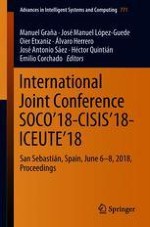2019 | OriginalPaper | Chapter
Impact of Auto-evaluation Tests as Part of the Continuous Evaluation in Programming Courses
Authors : C. Rubio-Escudero, G. Asencio-Cortés, F. Martínez-Álvarez, A. Troncoso, J. C. Riquelme
Published in: International Joint Conference SOCO’18-CISIS’18-ICEUTE’18
Publisher: Springer International Publishing
Activate our intelligent search to find suitable subject content or patents.
Select sections of text to find matching patents with Artificial Intelligence. powered by
Select sections of text to find additional relevant content using AI-assisted search. powered by
